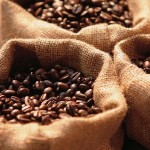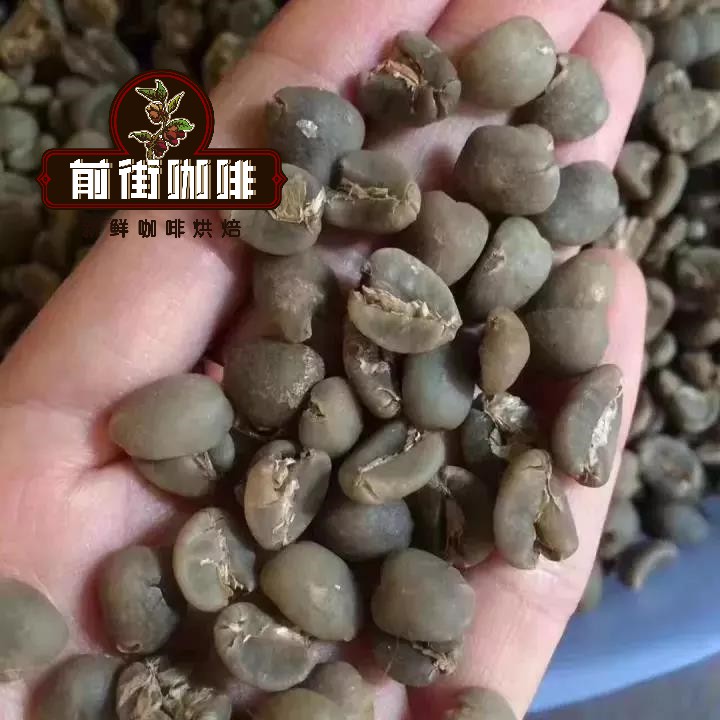How long will the coffee beans expire? How to judge the harm of fresh and expired coffee powder
From the beginning, freshness has been the core of boutique coffee as a concept. This is one of the key parameters that need to be controlled when we want to show excellent boutique coffee products. Recent coffee trends are aimed at pursuing the best coffee, and freshness is an interesting topic not only for boutique coffee, but also for mainstream coffee.

Coffee freshness is defined as having the original undamaged quality. More specifically, we are talking about the freshness of roasted coffee. The reason for this is that roasting produces coffee aroma, which makes coffee beans extractable, but also makes coffee unstable. Only after roasting can the coffee beans be damaged by oxygen, and the unstable aroma of coffee can easily escape from the coffee beans. Therefore, roasting coffee is unstable and constantly changing materials. To understand the freshness of coffee, we must first understand why and how it is lost.
There are four most important external factors affecting the loss of freshness: space, oxygen, temperature and time.

Space
Freshly roasted coffee beans are full of volatile aroma molecules. Due to physical and chemical effects, the aroma will want to escape to any open space around the coffee beans.
oxygen
The contact of coffee beans with oxygen in the air can lead to the degradation of some sensitive aroma components. This degradation can be perceived, but in many cases, the loss of aroma is mainly due to the process of aroma escaping into the open space around the coffee beans. However, another oxidation, the oxidation of coffee oil, produces a very unpleasant rancid ingredient, which should be avoided in any coffee. Oil naturally exists in roasted coffee beans, and the internal oxidation of coffee beans may be quite slow. But in the case of oil transfer to bean noodles, the effect is very fast, and very unpleasant.
Temperature
The two processes mentioned above, aroma diffusion and oxidation, are determined by temperature. Temperature makes molecules move, and the higher the temperature, the faster they move. As they move quickly, the aroma escapes from the beans and oxygen is more and more likely to cause damage to the beans. In theory, if we cool the coffee to absolute zero temperature, we can keep it fresh indefinitely.
time
The process of losing freshness is not achieved overnight, it takes a certain amount of time to happen.
Of course, in addition to the above four major points, there are other factors that will lead to the loss of freshness of coffee. Let's talk about it in more detail in the future.
If the coffee has passed its best shelf life, it is recommended that you stop drinking it. Whether coffee is new or not will have a bearing on one of the main things: taste and health.
It is conceivable that the fragrance, taste and taste of the old coffee beans and tasty coffee are not good. However, little attention has been paid to ochratoxin, a toxin that is often found in coffee and cereal foods. it is a product replaced by bacteria from black and penicillium. Short-term exposure in large amounts may cause lung water, organ failure, or even death. Long-term low doses are not good for tubules, and can also increase cancer risk.
Important Notice :
前街咖啡 FrontStreet Coffee has moved to new addredd:
FrontStreet Coffee Address: 315,Donghua East Road,GuangZhou
Tel:020 38364473
- Prev

Panamanian Coffee Manor Story description of Coffee Bean Variety and taste in La La Hones Manor
When it comes to the Malaslahones Coffee Manor in Panama, you may not know much about it. Today, let's start with the simple message of coffee beans and walk into the Malaslahones Manor. Area: Balu Volcano altitude: 1800-2400 m Craft: natural varieties: Pacamara, Geisha taste: grapefruit, cocoa, berry Los Lajones Estate is located
- Next

Brief introduction of Alida Manor Elida and description of Coffee Bean Flavor and taste in Panama
Name of Manor: Elida Estate Coffee owner: Ramesdis (since 1918) operator; Weaver. Ramesdis Manor location: O'Tu to give and. Annual output of Alto Quiel, Bouquete; 400 bags (60 kg per bag) manor area; 65 ha (30 ha coffee planting, 35 ha reserved primeval forest) old coffee tree area:
Related
- Detailed explanation of Jadeite planting Land in Panamanian Jadeite Manor introduction to the grading system of Jadeite competitive bidding, Red bid, Green bid and Rose Summer
- Story of Coffee planting in Brenka region of Costa Rica Stonehenge Manor anaerobic heavy honey treatment of flavor mouth
- What's on the barrel of Blue Mountain Coffee beans?
- Can American coffee also pull flowers? How to use hot American style to pull out a good-looking pattern?
- Can you make a cold extract with coffee beans? What is the right proportion for cold-extracted coffee formula?
- Indonesian PWN Gold Mandrine Coffee Origin Features Flavor How to Chong? Mandolin coffee is American.
- A brief introduction to the flavor characteristics of Brazilian yellow bourbon coffee beans
- What is the effect of different water quality on the flavor of cold-extracted coffee? What kind of water is best for brewing coffee?
- Why do you think of Rose Summer whenever you mention Panamanian coffee?
- Introduction to the characteristics of authentic blue mountain coffee bean producing areas? What is the CIB Coffee Authority in Jamaica?

